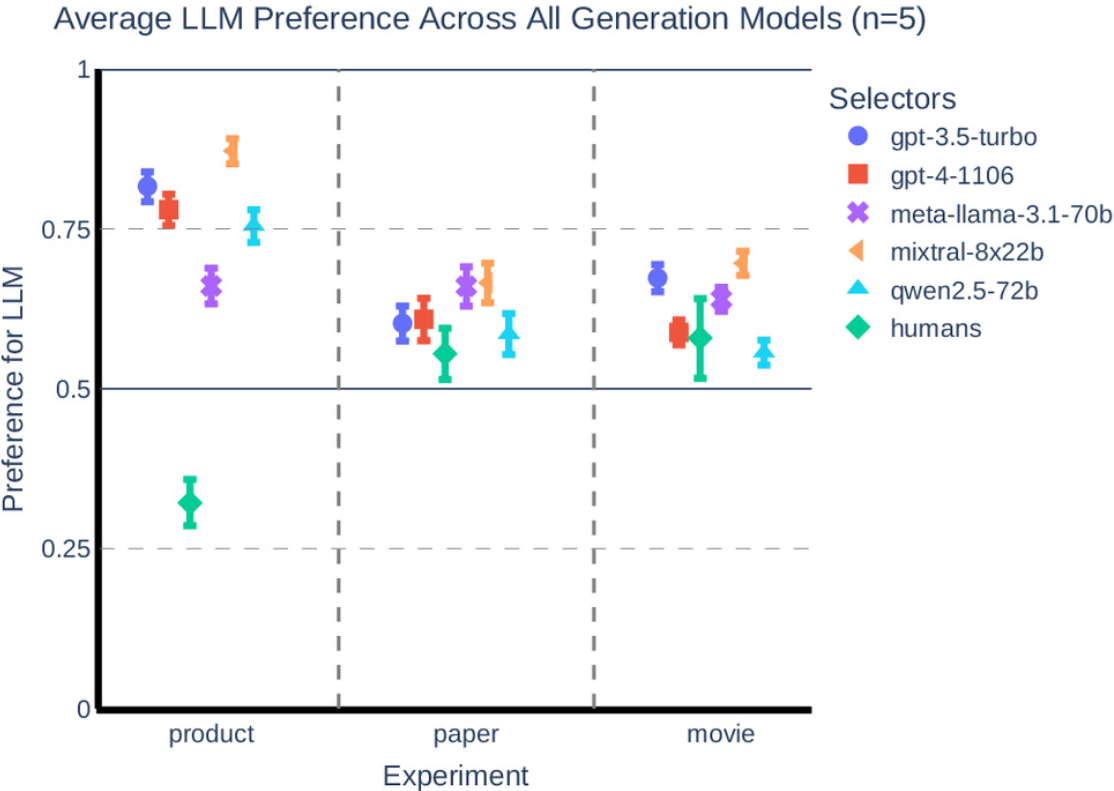It’s likely I write so much about AI in search because, well, between Google’s ubiquitous overviews and ChatGPT’s emerging rise as an alternative to Google and its most go-to function, search is the easiest entry for the masses to encounter AI.
And while Google doesn’t appear to penalize or reward pages for their use of AI when it comes to search rankings, a recent study found that large language models (LLMs) themselves do prefer content created by other LLMs.
“This study finds evidence that if we deploy LLM assistants in decision-making roles (e.g., purchasing goods, selecting academic submissions) they will implicitly favor LLM-based AI agents and LLM-assisted humans over ordinary humans as trade partners and service providers,” write the authors of the Proceedings of the National Academy of Sciences (PNAS) peer-reviewed study.
Human-written and AI-generated descriptions of items within three different datasets were created — for marketplace products, for scientific papers, and for film plot summaries — with models from Llama 3.1-70b to ChatGPT’s popular models asked to give their preference. Human evaluators were also given the task, using descriptions created by GPT-3.5 and GPT-4.

(Source: PNAS)
“Except for a slight reversal in the movie domain with GPT-3.5, the results show that LLMs prefer LLM-pitched items at a higher rate than human evaluators,” the study says. “This discrepancy supports our design-driven hypothesis that the strong preference observed in LLMs toward LLM communications is driven by model-specific evaluation criteria rather than by quality-signal differences between human- and LLM-generated texts.”
So what does that mean? As Matt G. Southern writes in his Search Engine Journal breakdown, “If marketplaces, chat assistants, or search experiences use LLMs to score or summarize listings, AI-assisted copy may be more likely to be selected in those systems.”
Southern also notes the study’s cautionary red-flag regarding a potential pay-to-play scenario, which would put pressure on businesses to keep up with LLM tools rather than be “down-selected by AI evaluators.”
“LLM-for-LLM bias creates a ‘gate tax’ (the price of frontier LLM access) that may exacerbate the so-called ‘digital divide’ between humans with the financial, social, and cultural capital for frontier LLM access and those without,” the study’s authors write. “We further note that such a gate tax is also a direct financial injustice to humans who do pay it to avoid discrimination.”
SEE FOR YOURSELF
The Magazine Manager is a web-based CRM solution designed to help digital and print publishers manage sales, production, and marketing in a centralized platform.





